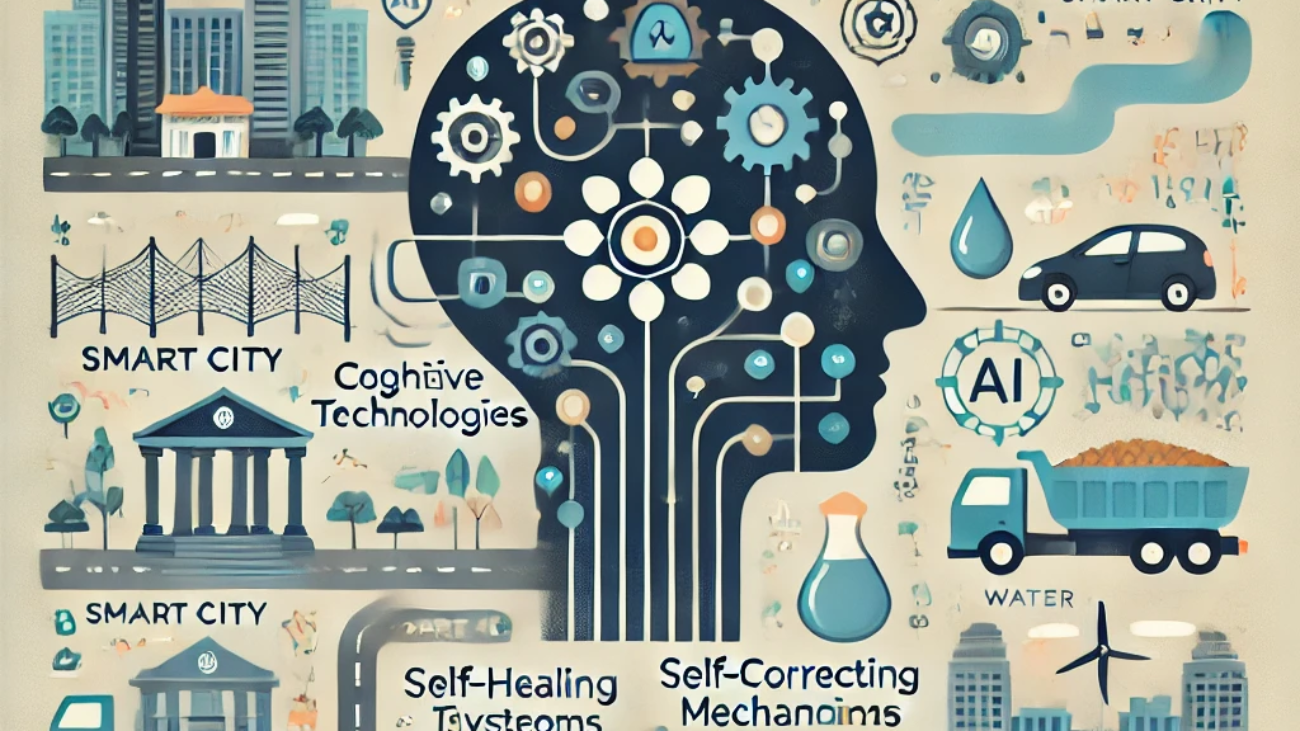In the age of rapid urbanization, smart cities have emerged as a beacon of hope, promising to enhance the quality of life for urban dwellers through innovative technologies. However, the sheer scale and complexity of managing large Tier 1 cities, especially in India, require advanced solutions that go beyond traditional methods. Cognitive technologies and self-correcting mechanisms offer a transformative approach to governance and maintenance, reducing the need for manual intervention and increasing efficiency. Implementing these technologies on an urgent basis in India’s heavily burdened cities can pave the way for a more sustainable and livable urban future.
The Promise of Cognitive Technologies
Cognitive technologies encompass a range of AI-driven solutions that enable machines to learn, reason, and adapt over time. These technologies can process vast amounts of data, recognize patterns, and make decisions with minimal human intervention.
Applications in Smart Cities
- Traffic Management: Cognitive systems can analyze real-time traffic data, predict congestion patterns, and optimize traffic light sequences to reduce jams and improve flow. This can significantly ease the daily commute for millions of urban residents.
- Energy Management: AI can monitor and predict energy consumption patterns, enabling smart grids to optimize energy distribution and reduce wastage. This leads to more sustainable energy use and lower costs for citizens.
- Public Safety: Cognitive technologies can enhance surveillance and emergency response systems. For example, AI-powered cameras can detect unusual activities and alert authorities in real time, improving the safety of public spaces.
Self-Correcting Mechanisms and Materials
Self-correcting mechanisms and materials are designed to detect faults or deviations in systems and automatically initiate corrective actions. These innovations can be applied to various aspects of city maintenance, ensuring smooth and uninterrupted service delivery.
Applications in Smart Cities
- Infrastructure Maintenance: Self-healing materials can be used in the construction of roads and buildings. These materials can automatically repair cracks and damages, extending the lifespan of infrastructure and reducing maintenance costs.
- Water Management: Smart water management systems equipped with self-correcting sensors can detect leaks or contamination in pipelines. These systems can automatically shut off affected areas and reroute water flow, preventing wastage and ensuring clean water supply.
- Waste Management: AI-driven waste management systems can optimize collection routes and schedules based on real-time data. Self-correcting mechanisms can ensure that waste bins are promptly serviced, reducing overflow and keeping the city clean.

Enhancing Governance
Cognitive technologies and self-correcting mechanisms can also revolutionize urban governance by providing data-driven insights and automating routine administrative tasks.
- Citizen Services: AI chatbots and virtual assistants can handle routine inquiries and service requests from citizens, freeing up human resources for more complex tasks. These systems can also provide personalized information and support, improving citizen engagement.
- Decision Making: Cognitive analytics can help city officials make informed decisions by analyzing data from various sources, such as social media, sensor networks, and public records. This leads to more effective policy-making and resource allocation.
- Predictive Maintenance: By continuously monitoring infrastructure and services, cognitive systems can predict potential failures and initiate preventive measures. This proactive approach minimizes disruptions and ensures the reliability of city services.
Urgent Need for Implementation in Indian Tier 1 Cities
India’s Tier 1 cities, such as Mumbai, Delhi, and Bangalore, are under immense pressure due to rapid urbanization, population growth, and resource constraints. The implementation of cognitive technologies and self-correcting mechanisms in these cities is not just beneficial but essential for several reasons:
- Alleviating Congestion: With millions of vehicles on the roads, traffic congestion is a significant issue. Cognitive traffic management can greatly alleviate this problem, leading to shorter commute times and reduced pollution.
- Ensuring Sustainability: Efficient energy and water management systems are crucial in cities facing frequent power outages and water shortages. Cognitive and self-correcting systems can ensure more sustainable resource use.
- Improving Public Health and Safety: Enhanced surveillance and waste management systems can significantly improve public health and safety, making cities more livable.
- Boosting Economic Growth: By improving infrastructure reliability and efficiency, these technologies can attract more businesses and investments, boosting economic growth.
Conclusion
Cognitive technologies and self-correcting mechanisms hold immense potential to revolutionize the governance and maintenance of smart cities. For India’s Tier 1 cities, which are grappling with the pressures of urbanization, these technologies offer a pathway to more efficient, sustainable, and livable urban environments. By piloting these projects on an urgent basis, India can not only enhance the quality of life for its urban citizens but also set a precedent for other cities worldwide. The future of urban living lies in intelligent, self-regulating systems that seamlessly integrate technology and infrastructure to create resilient and thriving communities.

